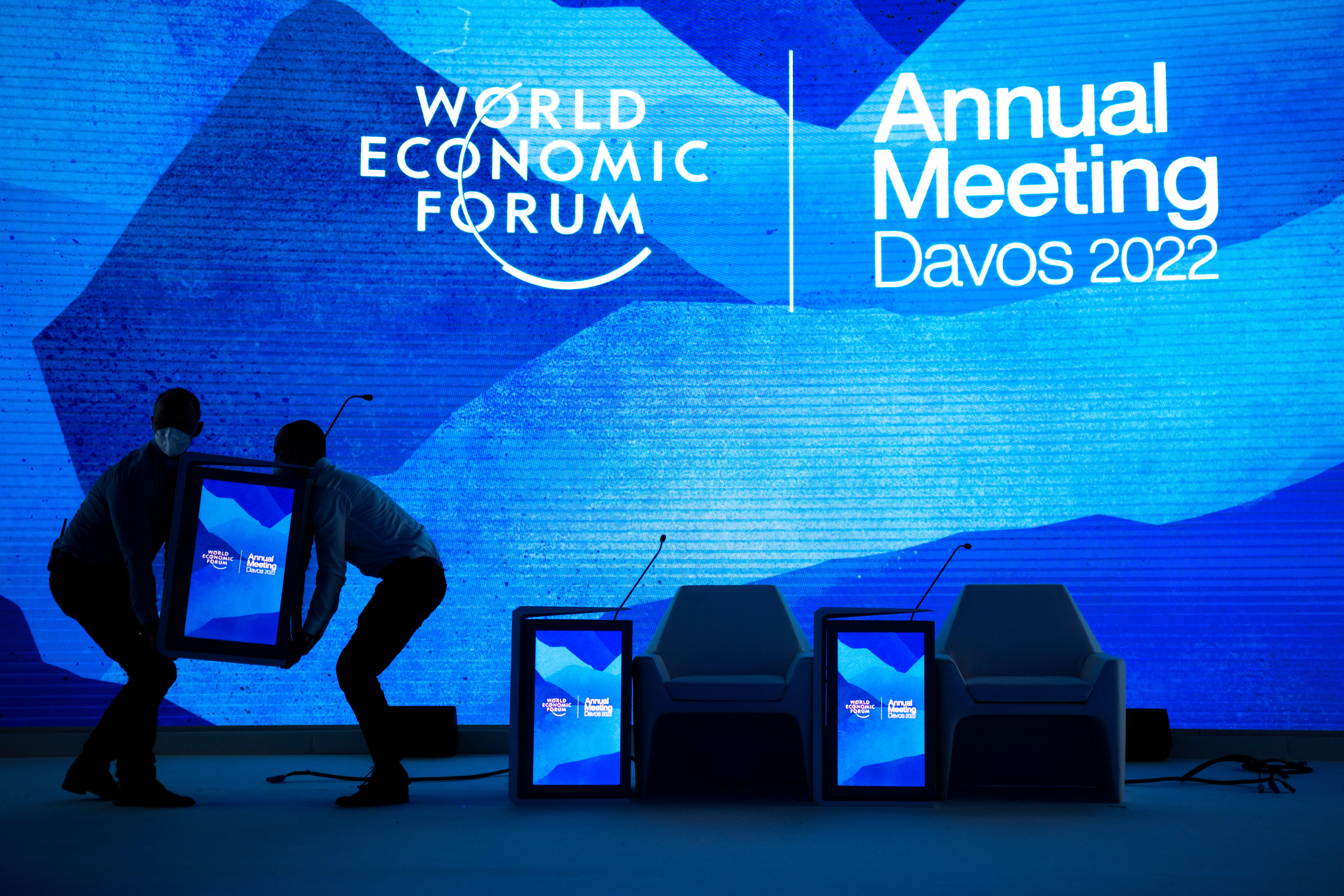The rich are gathering for Davos — but elsewhere is the summit that actually matters
A little-known United Nations summit gets underway in Indonesia this week on what to do about humanity entering ‘a spiral of self-destruction’. At Davos, leaders of the richest corporations and banks are sounding much more upbeat

Your support helps us to tell the story
From reproductive rights to climate change to Big Tech, The Independent is on the ground when the story is developing. Whether it's investigating the financials of Elon Musk's pro-Trump PAC or producing our latest documentary, 'The A Word', which shines a light on the American women fighting for reproductive rights, we know how important it is to parse out the facts from the messaging.
At such a critical moment in US history, we need reporters on the ground. Your donation allows us to keep sending journalists to speak to both sides of the story.
The Independent is trusted by Americans across the entire political spectrum. And unlike many other quality news outlets, we choose not to lock Americans out of our reporting and analysis with paywalls. We believe quality journalism should be available to everyone, paid for by those who can afford it.
Your support makes all the difference.A little-known United Nations summit gets underway in Indonesia this week. Unfortunately, it’s one that will become more important to us all.
The intention? What to do about humanity entering “a spiral of self-destruction”. At least that should be the focus, according to the UN’s Deputy Secretary, ahead of the gathering in Bali.
Meanwhile, on the other side of the world in Davos, Switzerland, leaders of the richest corporations and banks are sounding much more upbeat at the World Economic Forum’s Annual Meeting.
As usual, they are discussing how a “better capitalism” can lift everyone out of poverty - and save the environment.
Far sides of the world maybe, but these gatherings increasingly sound like far sides of reality. Which event is closer to the truth? The official UN data offers us some clues.
In 2015 the world’s governments set 17 Sustainable Development Goals (SDGs), covering a range of laudable aims such as ending hunger and curbing the climate crisis.
But the UN’s most recent update reveals a near total failure on achieving these goals.
This failure can only be partially attributed to the Covid pandemic. For instance, SDG 2 aims to end world hunger by the end of the decade - and yet food insecurity has been rising since 2014. A year before the pandemic struck, more than a quarter of the global population was affected by moderate or severe food insecurity.
But failure now appears inevitable. The missteps on climate action (SDG 13) and biodiversity (SDG 14 and 15) are impossible to ignore, as atmospheric concentrations of greenhouse gases increase, oceans grow more acidic, forests continue to be felled, and biological diversity is declining at alarming rates.
As someone who has worked with the UN system over 25 years on worker rights, health, environment, and trade, it is painful to see such massive backsliding. It is also difficult to witness a worldview that guided such work crumble in the face of real-world data.
That worldview emerged from the optimism of the end of the Cold War, with leaders declaring their commitment to “sustainable development”: the promise that everything could be improved by spreading a better form of capitalism around the world.
Not only does the experience of the past 30 years break apart that perspective, so does recent analysis of the challenges.
The UN’s International Energy Agency reports that there are not enough rare minerals to enable electrification for billions of people across the world, so that modern consumer lifestyles can continue without using fossil fuels. The obvious implication is that high-income societies need to plan for a fair way of reducing economic activity - now known as ‘degrowth’.
When the CEOs at Davos talk of “accelerating progress” on SDGs, it’s evident they haven’t been paying attention. They want to believe in the fantasy that technology, capital, enterprise and personal charisma will overcome real-world physics and biology. They need a fictional version of the world to tot up yet more shareholder value.
For decades, I also hoped that corporations would help tackle global challenges like poverty and ecological degradation. But now they are distracting us from uncomfortable realities that need sharp focus and braver action.
I’m one of more than a hundred scholars who think it’s important to free policy discussions from their influence. So rather than focusing on the Davos crowd, today we are releasing a letter to participants at the disaster summit in Indonesia.
We are publicly calling on them to admit the failed promise and false premise of sustainable development and its global goals and so ditch their allegiance to global capitalism in this new era of ecological emergency.
The signatories include top climate and ecological scientists, and academics specializing in a range of subjects, coming from dozens of countries.
People deserve the truth from experts and officials, rather than convenient myths. Only then might more of us prepare better for the disruptions ahead, through more locally-led adaptation.
Professor Jem Bendell (University of Cumbria) is a Young Global Leader alumnus of the World Economic Forum, and has been a consultant to the UN system since 1996
Join our commenting forum
Join thought-provoking conversations, follow other Independent readers and see their replies
0Comments